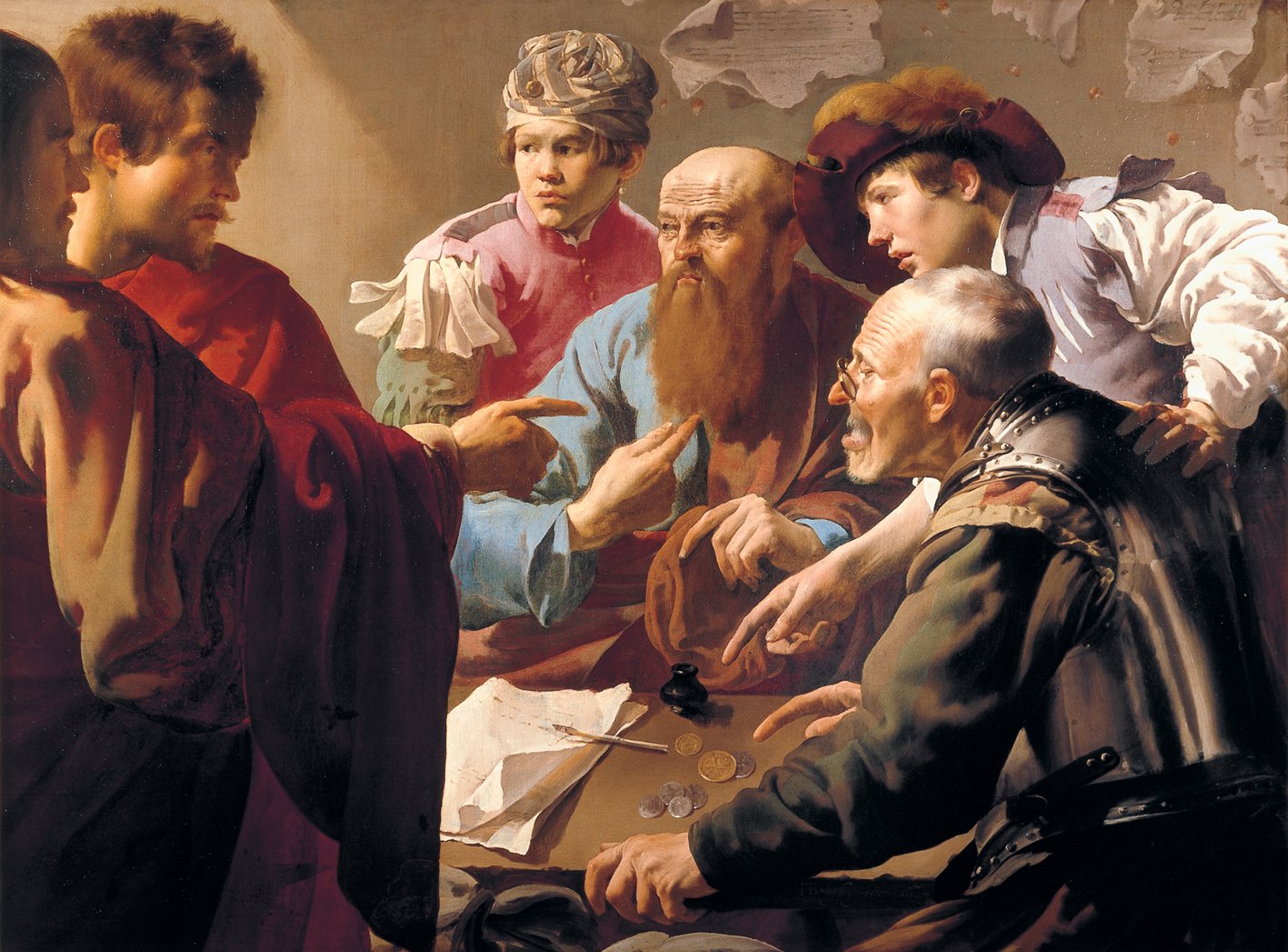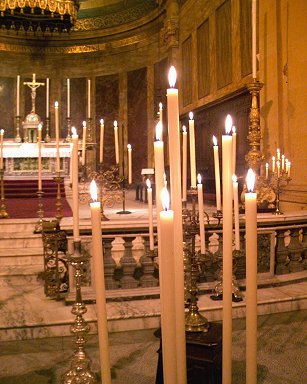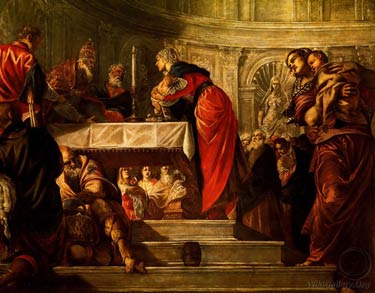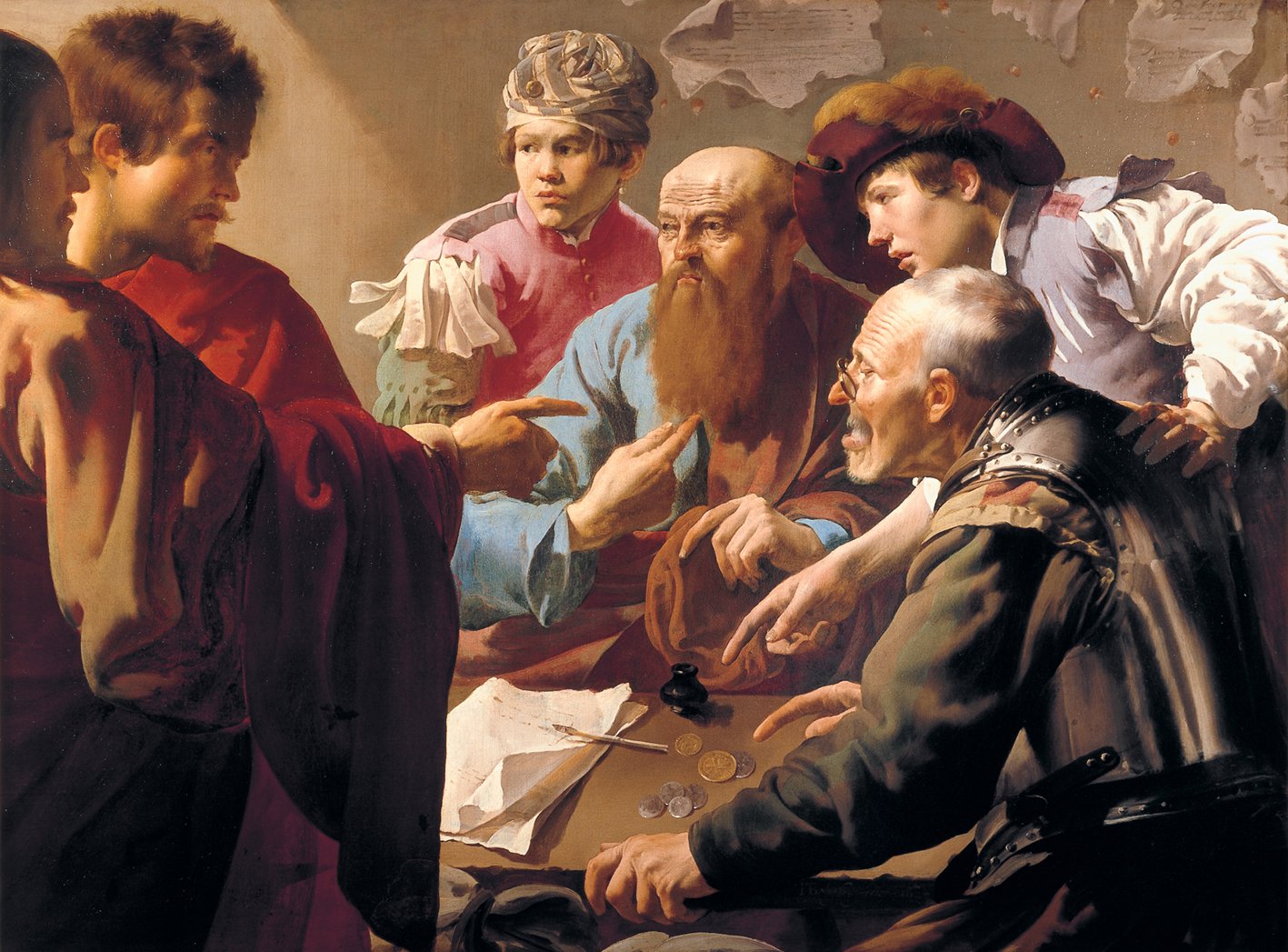 Why an education in beauty and the Liturgy of the Hours are important in the formation of lay people as part of the New Evangelisation. Thomas More College of Liberal Arts was treated to a lecture by a husband-and-wife team of theologians who both teach at St John's Seminary at Boston. David and Angela Franks run the newly established Masters of Theological Studies for the New Evangelization. Although based at the Seminary, this is aimed at lay formation and can be taken on a part-time basis. It is the first new programme of the Seminary's newly established, Theological Institute for the New Evangelisation (TINE).
David and Angela inspired our students (and myself!) with the vision that the Church has for the role of lay people in evangelising the modern world, charactererised by John Paul II as the New Evangelisation. All this is invaluable in itself, but what surprised and interested me particularly was their assertion that an education in beauty is an essential element in the formation of the individual who is going to be carry out their mission of taking the Word to the world. Furthermore, they highlighted the importance of the Liturgy of the Hours in this education.
Why an education in beauty and the Liturgy of the Hours are important in the formation of lay people as part of the New Evangelisation. Thomas More College of Liberal Arts was treated to a lecture by a husband-and-wife team of theologians who both teach at St John's Seminary at Boston. David and Angela Franks run the newly established Masters of Theological Studies for the New Evangelization. Although based at the Seminary, this is aimed at lay formation and can be taken on a part-time basis. It is the first new programme of the Seminary's newly established, Theological Institute for the New Evangelisation (TINE).
David and Angela inspired our students (and myself!) with the vision that the Church has for the role of lay people in evangelising the modern world, charactererised by John Paul II as the New Evangelisation. All this is invaluable in itself, but what surprised and interested me particularly was their assertion that an education in beauty is an essential element in the formation of the individual who is going to be carry out their mission of taking the Word to the world. Furthermore, they highlighted the importance of the Liturgy of the Hours in this education.
They described a process that is both active and reactive. The active role is one of living the life of faith, which is ultimately living the life of love that God intends for us. And we should do so, they said, without apologising for it!
There is a description in the Acts of the Apostles of the growth of the early Church in which people were attracted to the Christian life, we are told, 'because they loved each other'. When we lead a life of love then our lives will be beacons of light that will arouse curiosity in this secular society. Love is not so much a set of feelings but rather a set of actions motivated for the good of the other. That requires fortitude especially because it is precisely this that will cause us to stand out in the crowd and because, as David puts it, we live in an age when 'powerful forces are arrayed against true love'.
 That light will be brightest when we are answering most completely the personal vocation that God has made to us (aside from following the commandments of the Church). The determination of this personal vocation is an important early step therefore. I was lucky in my own life in being given some inspired guidance in trying to discern what this might be. This has ended up in me doing what I am now at Thomas More College. I have described the process here. The programme at the St John's Seminary offers guidance also in this first step.
That light will be brightest when we are answering most completely the personal vocation that God has made to us (aside from following the commandments of the Church). The determination of this personal vocation is an important early step therefore. I was lucky in my own life in being given some inspired guidance in trying to discern what this might be. This has ended up in me doing what I am now at Thomas More College. I have described the process here. The programme at the St John's Seminary offers guidance also in this first step.
The second part is reactive. When people see a life of love it arouses curiosity and they ask questions. At this point we need to be able to answer them truthfully and prudently. Part of the programme at St John's is about equipping people with knowledge of the truth - we must know what the Church teaches, or at the very least, where to go to find out what the Church teaches.
But also, we must present this information in such a way that it continues to attract people. Force of logic will only take you so far. It is not just what you say, but how you say it. Prudence guides this. While knowing what to say and when can be trained in some ways directly, so much of this is about developing an intuitive sense of it. A key principle in operation here is beauty. When we do something attractively, we are doing it beautifully. This is why a training in beauty is so important, we were told. It develops that instantaneous intuitive sense of knowing what to do best.
After the talk there was a lively question and answer session and one student asked directly. What should we be aiming for in our spiritual lives in order to be able to achieve this? To my great delight, David answered without hesitation, that beyond the basic requirements of the sacramental life, he felt that the Liturgy of the Hours was a powerful and 'supremely effective' form of prayer.
David and Angela invite everyone who might be interested to take a look at the exciting opportunities for lay people offered by St John's Seminary. You can find out more by going to the www.sjs.edu and clicking on the 'TINE' logo.
For a growing series of articles about the Liturgy of the Hours as part of The Way of Beauty, see here.
Thomas More College of Liberal Arts offers a traditional education in beauty, incorporating the Liturgy of the Hours as one of the key components of the spiritual life of the college. The course, The Way of Beauty is part of its core curriculum with the intention of offering our students to best chance of coming out as ambassadors of the New Evangelisation.
In addition, our summer programme has short courses open to everyone to teach precisely this. Artists and musicians can learn it in conjunction with the skills of icon painting, academic drawing or Gregorian chant in our two-week programmes in July. Our weekend retreat in creativity and inspiration in August offers everyone else the chance to learn the traditional education in beauty - developed as part of the training of artists - but without having to learn the artistic skills. For more information about all of these courses see here.
Images Top and bottom: The Calling of St Matthew by Hendrick ter Brugghen, 1621; candles at the Birmingham Oratory, England; The Presentation of Jesus at the Temple (Candlemass) by Tintoretto, c1550



